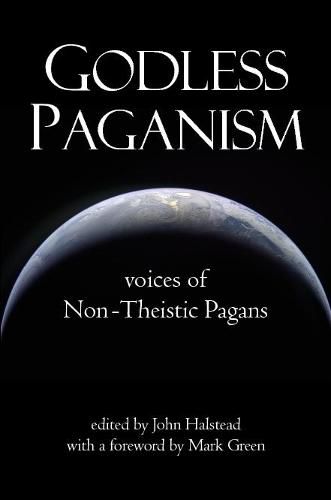Readings Newsletter
Become a Readings Member to make your shopping experience even easier.
Sign in or sign up for free!
You’re not far away from qualifying for FREE standard shipping within Australia
You’ve qualified for FREE standard shipping within Australia
The cart is loading…






This title is printed to order. This book may have been self-published. If so, we cannot guarantee the quality of the content. In the main most books will have gone through the editing process however some may not. We therefore suggest that you be aware of this before ordering this book. If in doubt check either the author or publisher’s details as we are unable to accept any returns unless they are faulty. Please contact us if you have any questions.
Even in pagan antiquity, there were those who, while participating in the community's religious life, did not believe in literal gods. In the centuries that followed the Christian domination of the West, the epithet "godless pagan" was leveled at a wide variety of people. In the 1960s, there emerged a community of people who sought to reclaim the name "pagan" from its history of opprobrium. These Neo-Pagans were interested in nature spirituality and polytheism, and identified with the misunderstood and persecuted pagans of antiquity. While many Pagans today believe in literal gods, there are a growing number of Pagans who are "godless." Today, the diverse assemblage of spiritual paths known as Paganism includes atheist Pagans or Atheopagans, Humanistic and Naturalistic Pagans, Buddho-Pagans, animists, pantheists, Gaians, and other non-theistic Pagans. Here, their voices are gathered together to share what it means to be Pagan and godless.
$9.00 standard shipping within Australia
FREE standard shipping within Australia for orders over $100.00
Express & International shipping calculated at checkout
This title is printed to order. This book may have been self-published. If so, we cannot guarantee the quality of the content. In the main most books will have gone through the editing process however some may not. We therefore suggest that you be aware of this before ordering this book. If in doubt check either the author or publisher’s details as we are unable to accept any returns unless they are faulty. Please contact us if you have any questions.
Even in pagan antiquity, there were those who, while participating in the community's religious life, did not believe in literal gods. In the centuries that followed the Christian domination of the West, the epithet "godless pagan" was leveled at a wide variety of people. In the 1960s, there emerged a community of people who sought to reclaim the name "pagan" from its history of opprobrium. These Neo-Pagans were interested in nature spirituality and polytheism, and identified with the misunderstood and persecuted pagans of antiquity. While many Pagans today believe in literal gods, there are a growing number of Pagans who are "godless." Today, the diverse assemblage of spiritual paths known as Paganism includes atheist Pagans or Atheopagans, Humanistic and Naturalistic Pagans, Buddho-Pagans, animists, pantheists, Gaians, and other non-theistic Pagans. Here, their voices are gathered together to share what it means to be Pagan and godless.